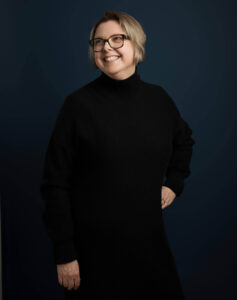When I made the transition from academia to consulting, I was excited about the new opportunities that awaited me. The prospect of working with a variety of clients and applying my skills and knowledge in new and challenging ways was exhilarating. However, I soon realized that I was facing a significant challenge. Unlike academia, where mentorship and guidance were readily available from my professors, I found myself struggling to find a place to turn for advice and support in the non-academic world.
As a graduate student, I had always relied on my professors for mentorship. They had provided valuable guidance and support as I pursued my academic goals. However, when it came to non-academic careers, I found that their knowledge and experience were limited. They were simply not equipped to offer the guidance I needed.
Navigating my first job.
Feeling lost and unsure, I accepted a job offer without fully understanding what the responsibilities would be. It wasn’t until I was fully immersed in the job that I realized how much I had to learn. I knew then that I needed to find a mentor who could offer guidance and support on this new path.
I began by seeking advice from my colleagues, but their experiences were limited, and they were often as unsure as I was. I scoured online forums and websites for guidance but found little that was helpful. Eventually, I decided to reach out to people I knew in the consulting industry, hoping to find someone who could offer advice and support.
Finding a mentor.
Through trial and error, I eventually found a mentor who helped me navigate the world of consulting. She had years of experience in the field and was able to offer invaluable guidance on everything from building a professional network to navigating client relationships. Thanks to her mentorship, I was able to build the skills and knowledge I needed to thrive in my new career.
But finding the right mentor was not easy. I learned that mentorship is a two-way street, and it takes time to find the right fit. I had to be proactive in seeking out mentors, reaching out to people in my industry and attending networking events. It was a process that took time, effort, and persistence.
Looking back, I realized that the key to success in non-academic careers is finding the right mentor. University professors, while valuable mentors in the academic world, may not have the expertise or connections needed to help students succeed outside academia. To bridge the gap, universities should provide industry mentors who can offer guidance on career options and help students develop the skills needed for success in non-academic settings.
Mentorship is an ongoing process.
In addition to seeking out industry mentors, students should also seek mentorship from professionals outside of their university and department. This can involve attending industry events, reaching out to alumni, or seeking mentorship from professionals through online platforms. It is important to recognize that mentorship is an ongoing process, and students should continue seeking out mentorship throughout their careers to ensure continued growth and development.
The lesson I learned is that mentorship is a crucial component of success, no matter what career path you choose. By finding the right mentor, you can gain valuable insight and guidance that will help you navigate the challenges and opportunities of any career path. With persistence and dedication, anyone can find the mentorship they need to succeed in their chosen field.






